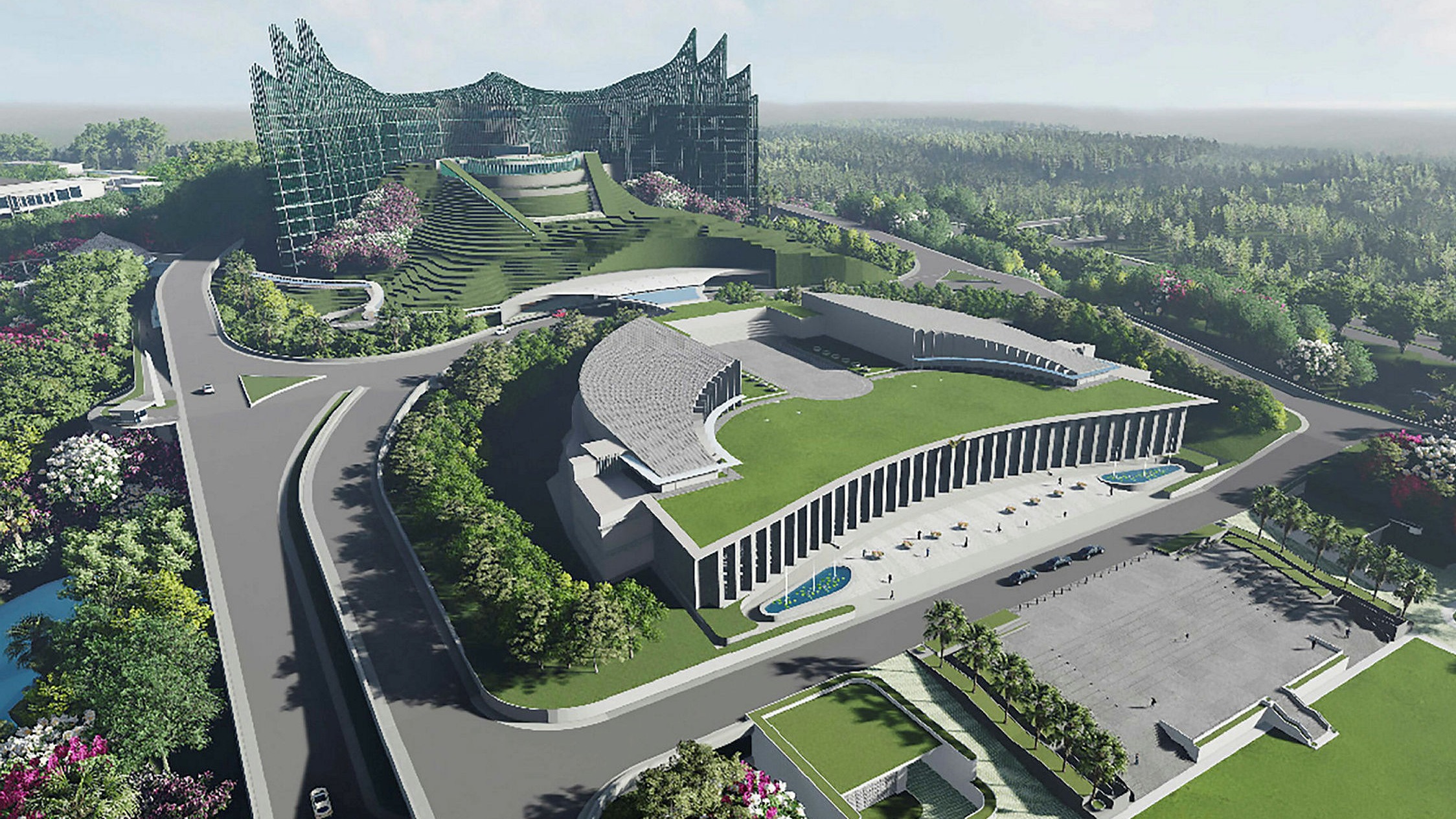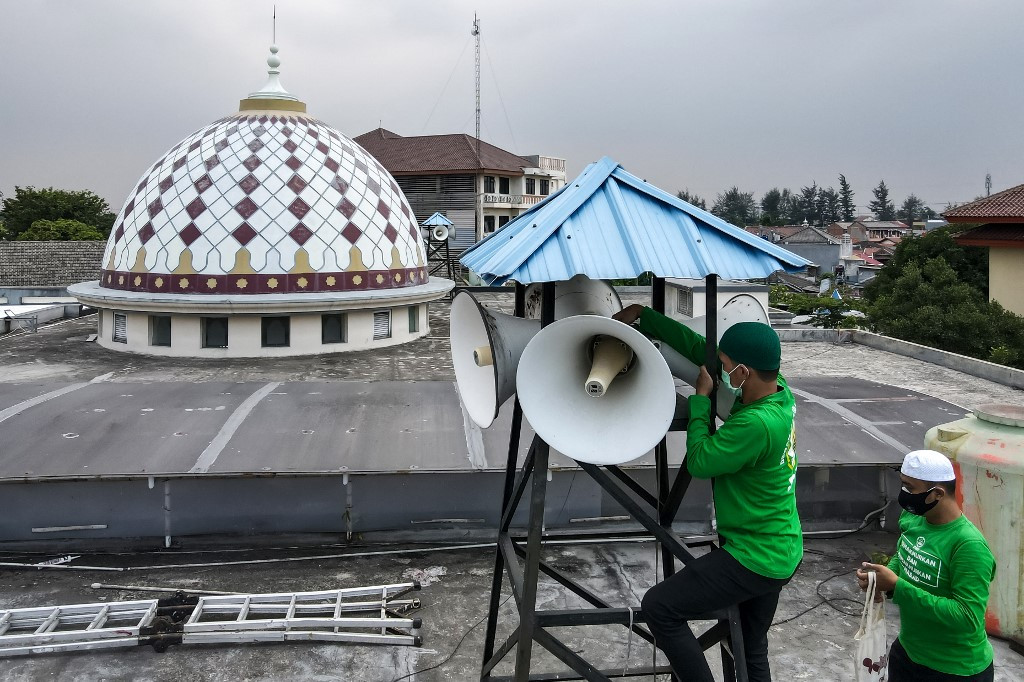Keep calm and carry on

Luhut Pandjaitan Credit: CNBC Indonesia
There’ll be few Valentine’s Day greetings and faux flower mall displays in Indonesia two years hence. That’s not because Muslim scholars will again warn followers not to celebrate ‘values that are considered to be against the Islamic Sharia.’
The key reason to forget pink hearts and rose bouquets is that Wednesday 14 February 2024 will be presidential Election Day in the world’s third-largest democracy. Voting isn’t compulsory but past turnouts have been high – 70 per cent in 2014 and 83 per cent in 2019.
The 2019 campaign was brutal. So was the election. Voters push a nail through the name and photo on the ballot paper to record their vote. At the count, officials hold up each slip to show it’s valid. More than 220 election officers reportedly died and almost 1,500 fell ill from stress. Riots following the result led to at least six deaths and hundreds injured.
After second president Soeharto spent 32 years in office, the Constitution was changed restricting a president to two five-year terms, meaning Joko ‘Jokowi’ Widodo will have to retire and head back to Solo.
In his Central Java hometown he ran a furniture business before being propelled into the nation’s top job with a humble guy-like-us profile. He wasn’t a retired general or an oligarch asserting the divine right to rule through dubious links to the long-abolished Sultanates.
There’s now a drive to change the Constitution and allow Jokowi and wife Iriana three more years in Jakarta’s Istana Merdeka (Freedom Palace). The motives are impure, laundered with raggedy reasoning about jobs still to be done and time needed to recover from the pandemic.
Indicator Politic Indonesia researcher Bawono Kumoro argues people and parties who’ve benefited from having Widodo in power ‘feel anxious that their position of comfort will be undermined when Widodo's leadership comes to an end.’
Particularly twitchy is the Islamic Partai Kebangkitan Bangsa (National Awakening Party). Although it scored only 58 seats in the 575 seat Dewan Perwakilan Rakyat (People's Representative Council) it holds four key portfolios, including Trade and Manpower.
Without bothering to reveal examinable data, PKB General Chairperson Muhaimin Iskandar said social media agrees with his postpone proposal as does the Golkar Party (85 seats) and the National Mandate Party (44 seats). The two parties have yet to confirm.
The rest - 388 seats across nine parties - are saying ‘no delay’, or waiting till the wind blows a new mood from the electorate.
Particularly worrying is another wild claim, this time from Coordinating Minister for Maritime Affairs and Investment Luhut Pandjaitan. His insistence that keeping the Prez in office is backed by 110 million social media box-tickers has been ridiculed as impossible.
The former general had a business partnership with Widodo and is widely considered his éminence grise. The 74-year old’s statements are becoming increasingly incoherent and widely mocked.
The urgers face an uphill climb. An IPI survey last December appeared to show around two of every three respondents want the 2024 elections to go ahead even if Covid still thrives.
Former The Jakarta Post editor Endy Bayuni has no time for taking the electorate’s pulse. He calls the shilly-shallying ‘subversion’:
‘That is not too strong a word to describe the current attempt by some political leaders to extend the terms of the government, both of the President and the legislature, beyond 2024. Whatever pretext they use in advancing their argument, they are subverting the democratic political processes. And that is nothing less than treason.’
The president is revealing little – but his party secretary-general Hasto Kristiyanto reportedly said a postponement would create a crisis. Yet voters can appreciate ‘the infrastructure president’ wanting to leave a concrete legacy.
That’s the new national capital Nusantara in the province of Kalimantan 2,000 km north of Jakarta, on Borneo the largest island in Asia shared with Malaysia and Brunei. This month Widodo appointed Bambang Susantono head of the Archipelago Capital Authority for five years. The civil engineer and economist has a PhD in infrastructure planning from UC Berkeley.

He told CNN the President wants ‘a city for all … it must be inclusive, it must be green, it must be intelligent, and it must be sustainable’. Nusantara will cover more than 250,000 hectares of a former industrial forest—more than three times the size of Jakarta—and housing 1.5 million by 2045.
That’s a spit, not a swallow. Jakarta’s population is 11
million; triple that number if the greater metro area is included. Java has 145
million, Kalimantan 17.5. Indonesia’s population growth
rate is 1.1 per cent across a nation of 273 million.
The new capital’s budget is AUD $49 billion. As with all mega projects the figure will
rise with the sun every morning, so future administrations facing fiscal stress
could reallocate the rupiah to other needs. The Republic’s present debt is projected
to hit around AUD 745 billion by the end of this year, about 45 per cent of its
GDP.
Then Jokowi’s vision could become another Naypyidaw, the little-used artificial capital of Myanmar. That’s less likely to happen if Widodo stays in office to ensure the transit mixers keep turning.
Few doubt the need to do something about the capital: The sea is rising by about 3.6 mm per year. One report forecasts much of North Jakarta will drown by 2050. Traffic congestion is hideous. So is pollution. The city holds position ten on the list of world’s black spots according to some surveys.
Research shows that Jakartans drilling wells unchecked are producing a ‘massive empty space underground, which becomes the major subsidence area.’
Opponents of the jungle capital are few, though business notes most customers are in Java and shifting will ramp costs. Government departments can be forced to move but commerce can’t.
Concerns about the exclusion of local and indigenous communities from the planning process look worrying if true. One British-based website which says it’s ‘a movement for democracy, freedom of information and expression in Southeast Asia’ called Nusantara ‘an internal colonial project in disguise’.
A coalition of NGOs has asserted the area is ‘controlled by 162 mining concessions, mostly coal companies’ which will sell the city coal-fired electricity.
So far taxpayers have seen designs for an ostentatious palace and little else. However fast the development and however long he hangs on, the 60-year old president would only glimpse his dream.
The median life
expectancy for Indonesian men is 70 years compared to Australia’s 83. The
debate should include boosting health care to stay alive and well – not just
staying in power.
First published in Pearls & Irritations, 25 March 2022: https://johnmenadue.com/keep-calm-and-carry-on-with-president-widodo/





